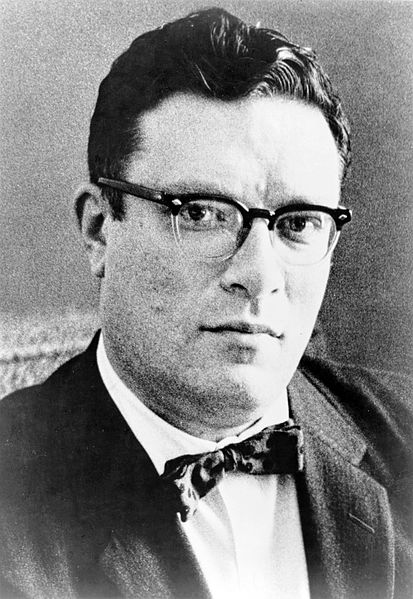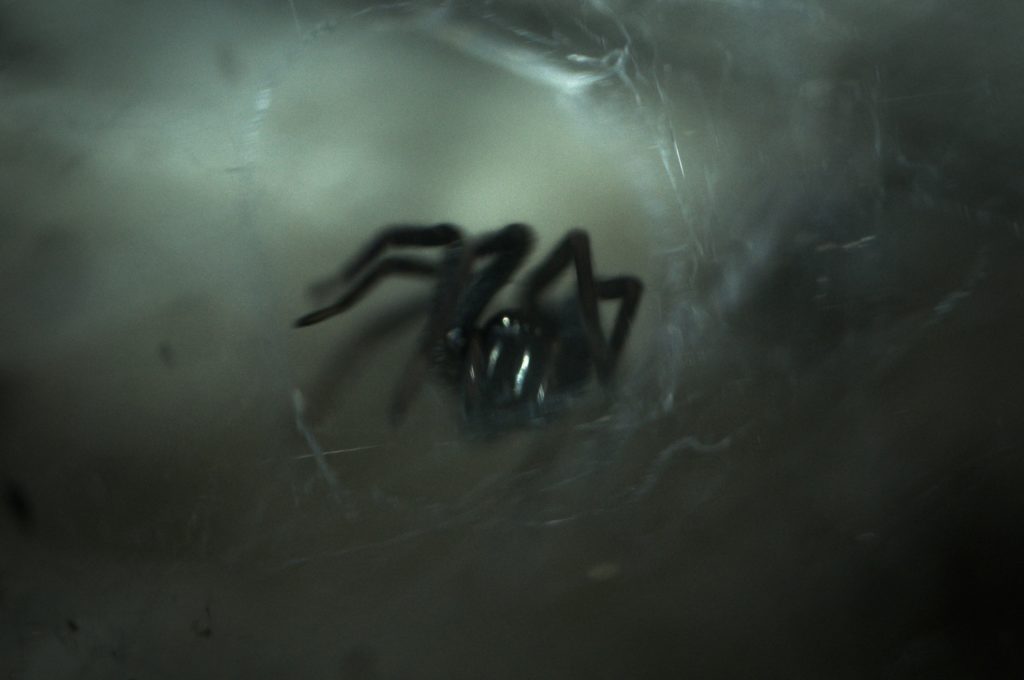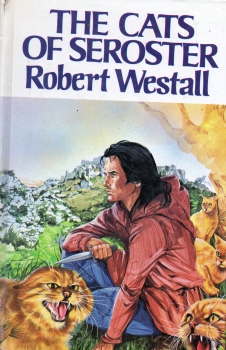So we have Warriors, but what is that for a life. When I was younger I thought that it would be great to be a

cat, it would make everything so much simpler living by the rules of the warrior code and not having to worry about IRL problems like student debt, grades, etc.
However, the warrior code sucks once you get past a certain age. If you want an unnecessarily restrictive set of rules to live by you can find plenty as a human, but I for one am fine without.
I know the series romanticizes the concept of being a warrior and living by the warrior code, but you have to realize how brutal and hard life would be–even considering just the little things.
Also there’s the whole aspect of war being…you know…bad. Yet you’d want to live in a culture where making war is so important that being called a warrior is just a normal mark of adulthood?
It’s not like the clan cats ever learn from their past, either.
They constantly fight over borders.
You’d live a life with almost no breaks, waking up early for the dawn patrol or a hunting patrol, and suffering through harsh winters with an empty belly. You’d deal with foxes and badgers, rogues, and rival clans. You’d seldom be able to travel out of your own territory aside from Gatherings or very special occasions. And it always struck me that they never had anything as basic as a weekend or any sort of holiday. The closest thing they have is a Gathering.
Otherwise, it’s a daily slog with no breaks for pretty much your whole life.
I imagine that you’d get tired of living the same life of patrols, battles, and harsh winters. You’d witness the deaths of your clanmates, and may even meet a horrible fate yourself. Greencough, hunger, cold, battle, infection–not at all pretty deaths, either.
Plus, living in a clan you have very few romantic options, and unless the leader has been letting new cats in they’ll mostly be your relatives.
They have no art, science, or technology, so I hope you don’t want a career in those fields.
Actually, hope you don’t want anything, because you won’t have much choice. Almost nobody gets to be a medicine cat, since there are so few at a time, ditto for leaders and permanent queens, so you get to be a warrior! Unless you’re lucky enough to be crippled by a wound or birth defect, then I guess you could live with the elders forever.
Generally speaking, being a cat would be worse than being a human. You suddenly have to be terrified of things you never would have been terrified of as a human (birds, dogs, other cats) and you also don’t get to have hands anymore.
Even though I wanted to be something like a medicine cat, the reality is that I’d probably be a Kittypet. Or, you know, myself.
 Long ago, when I was a tiny 3rd grader, I was pestering my father for book recommendations, having finished whatever juvenile series I was reading at the time.
He took me down to the basement, to pick a book from his library.
It set a Foundation.
Foundation was one of those books that was prominently placed in his library.
It had an interesting cover so I picked it up and I was hooked by the first paragraph. I’ve ready every work of non-fiction by Asimov since then.
Out of the hundreds of sci-fi and fantasy books there, Asimov represented by far the largest component.
He had almost a hundred different Asimov books, and even more now. Obviously, my dad beelined for the Asimov section and looked for one he knew would appeal to me.
I was given one of the Fantasy and Science Fiction collections, maybe the Planet that Wasn’t or Only a Trillion, and I subsequently devoured all the other ones we had.
I was already hooked on Asimov before I even started reading Asimov!
~XO
Long ago, when I was a tiny 3rd grader, I was pestering my father for book recommendations, having finished whatever juvenile series I was reading at the time.
He took me down to the basement, to pick a book from his library.
It set a Foundation.
Foundation was one of those books that was prominently placed in his library.
It had an interesting cover so I picked it up and I was hooked by the first paragraph. I’ve ready every work of non-fiction by Asimov since then.
Out of the hundreds of sci-fi and fantasy books there, Asimov represented by far the largest component.
He had almost a hundred different Asimov books, and even more now. Obviously, my dad beelined for the Asimov section and looked for one he knew would appeal to me.
I was given one of the Fantasy and Science Fiction collections, maybe the Planet that Wasn’t or Only a Trillion, and I subsequently devoured all the other ones we had.
I was already hooked on Asimov before I even started reading Asimov!
~XO  Long ago, when I was a tiny 3rd grader, I was pestering my father for book recommendations, having finished whatever juvenile series I was reading at the time.
He took me down to the basement, to pick a book from his library.
It set a Foundation.
Foundation was one of those books that was prominently placed in his library.
It had an interesting cover so I picked it up and I was hooked by the first paragraph. I’ve ready every work of non-fiction by Asimov since then.
Out of the hundreds of sci-fi and fantasy books there, Asimov represented by far the largest component.
He had almost a hundred different Asimov books, and even more now. Obviously, my dad beelined for the Asimov section and looked for one he knew would appeal to me.
I was given one of the Fantasy and Science Fiction collections, maybe the Planet that Wasn’t or Only a Trillion, and I subsequently devoured all the other ones we had.
I was already hooked on Asimov before I even started reading Asimov!
~XO
Long ago, when I was a tiny 3rd grader, I was pestering my father for book recommendations, having finished whatever juvenile series I was reading at the time.
He took me down to the basement, to pick a book from his library.
It set a Foundation.
Foundation was one of those books that was prominently placed in his library.
It had an interesting cover so I picked it up and I was hooked by the first paragraph. I’ve ready every work of non-fiction by Asimov since then.
Out of the hundreds of sci-fi and fantasy books there, Asimov represented by far the largest component.
He had almost a hundred different Asimov books, and even more now. Obviously, my dad beelined for the Asimov section and looked for one he knew would appeal to me.
I was given one of the Fantasy and Science Fiction collections, maybe the Planet that Wasn’t or Only a Trillion, and I subsequently devoured all the other ones we had.
I was already hooked on Asimov before I even started reading Asimov!
~XO 
 I started the series shortly after the first series ended. It was at that just starting to get big. So, while not the earliest adopter, I got in early. Alright, the series is older now and I have read all of the books. For newcomers to the series it might feel like a daunting task to catch up.
Well, the series isn’t flawless.
Things it does have going for it include a large and well developed world, a multitude of great characters, and the dark, yet optimistic tone. While it is not Watership Down, there’s a lot of really good stuff here, and several of the later books have made me cry.
There’s also a lot to discuss, since there are lots of questions raised, and the characters face situations that often don’t have easy answers.
However, there are some major turnoffs.
The world has a large scope, but errors are frequent. There are minor ones, like a few misspellings here and there, and then there are major continuity ones. Prequel books will sometimes feature characters who were already dead during the time period of the prequel, or randomly forget a character’s backstory. This can be really frustrating, since you’ll get attached to some characters, only to see everything about them thrown out because the authors forget important information about them.
The book is written by six women, together Erin Hunter, and problems like this can be expected.
An editor’s job would be to keep continuity straight.
They don’t.
For example, many warriors turned medicine cats end up being shown as medicine cats in their youth.) Also, some characters are overexposed and there are sometimes pacing problems.
Overall, I’d say the good outweighs the bad, and I would strongly recommend the series, but be prepared to have some frustration along with your enjoyment of it. Also, skip Leafpool’s Wish.
Leafpool’s Wish isn’t because it’s bad by any means, but rather that it doesn’t include any important information we don’t learn by reading the main series. It’s basically about Leafpool convincing Squirrelflight to help her.
It’s not worth reading unless you have an investment in either of the characters.
I started the series shortly after the first series ended. It was at that just starting to get big. So, while not the earliest adopter, I got in early. Alright, the series is older now and I have read all of the books. For newcomers to the series it might feel like a daunting task to catch up.
Well, the series isn’t flawless.
Things it does have going for it include a large and well developed world, a multitude of great characters, and the dark, yet optimistic tone. While it is not Watership Down, there’s a lot of really good stuff here, and several of the later books have made me cry.
There’s also a lot to discuss, since there are lots of questions raised, and the characters face situations that often don’t have easy answers.
However, there are some major turnoffs.
The world has a large scope, but errors are frequent. There are minor ones, like a few misspellings here and there, and then there are major continuity ones. Prequel books will sometimes feature characters who were already dead during the time period of the prequel, or randomly forget a character’s backstory. This can be really frustrating, since you’ll get attached to some characters, only to see everything about them thrown out because the authors forget important information about them.
The book is written by six women, together Erin Hunter, and problems like this can be expected.
An editor’s job would be to keep continuity straight.
They don’t.
For example, many warriors turned medicine cats end up being shown as medicine cats in their youth.) Also, some characters are overexposed and there are sometimes pacing problems.
Overall, I’d say the good outweighs the bad, and I would strongly recommend the series, but be prepared to have some frustration along with your enjoyment of it. Also, skip Leafpool’s Wish.
Leafpool’s Wish isn’t because it’s bad by any means, but rather that it doesn’t include any important information we don’t learn by reading the main series. It’s basically about Leafpool convincing Squirrelflight to help her.
It’s not worth reading unless you have an investment in either of the characters.  The book is essentially a fantasy for older children. But a fun read non-the-less.
The closest comparison I can think of right now is
The book is essentially a fantasy for older children. But a fun read non-the-less.
The closest comparison I can think of right now is  It’s one of the most enlightening, well-written books I’ve ever encountered in my life.
It’s a non-fiction adventure-travelogue by a rogue National Geographic explorer hiking all over the Himalayas with a mystic sherpa looking for Shangri-La, dealing with shady porters, leeches, local weirdos, sickness, and, of course, the Chinese Army.
It reads like Survivorman Les Stroud meets Rudyard Kipling crossed with Indiana Jones.
It’s pretty much my personal Bible, or would be if I were religious.
It’s one of the most enlightening, well-written books I’ve ever encountered in my life.
It’s a non-fiction adventure-travelogue by a rogue National Geographic explorer hiking all over the Himalayas with a mystic sherpa looking for Shangri-La, dealing with shady porters, leeches, local weirdos, sickness, and, of course, the Chinese Army.
It reads like Survivorman Les Stroud meets Rudyard Kipling crossed with Indiana Jones.
It’s pretty much my personal Bible, or would be if I were religious.  If you have seen Soylent Green, you’ll most certainly know “it’s people!” The film is based off of Harry Harrison’s 1966 science fiction novel Make Room. In the novel, soylent is made from soya and lentils.
Yet you will see tons of reference made to the title along with cannibal jokes. I’m pretty sure most people making the joke have never seen the film. Nor do they even know that it is based on Make Room, let along that the original novel didn’t feature cannibalism at all.
And now this…
The first time someone linked me to Soylent’s website, I seriously thought it was some promotion / ARG / viral marketing thing for a Soylent Green movie remake, modernizing the story with meal replacement shakes instead of crackers.
I honestly hoped that it was some promotion / ARG / viral marketing thing for a Soylent Green movie remake!
I think at the time you couldn’t just buy it out a store on the website, you had to sign up for a mailing list, so that helped it not look like a real product.
I’m not a fan of the name either. The name is too ingrained in popular culture to be taken seriously and it leaves a bad after taste since more people will be aware of the film than the novel.
It definitely succeeds in getting your attention and generating buzz, I’ll give it that. An interesting name,
If you have seen Soylent Green, you’ll most certainly know “it’s people!” The film is based off of Harry Harrison’s 1966 science fiction novel Make Room. In the novel, soylent is made from soya and lentils.
Yet you will see tons of reference made to the title along with cannibal jokes. I’m pretty sure most people making the joke have never seen the film. Nor do they even know that it is based on Make Room, let along that the original novel didn’t feature cannibalism at all.
And now this…
The first time someone linked me to Soylent’s website, I seriously thought it was some promotion / ARG / viral marketing thing for a Soylent Green movie remake, modernizing the story with meal replacement shakes instead of crackers.
I honestly hoped that it was some promotion / ARG / viral marketing thing for a Soylent Green movie remake!
I think at the time you couldn’t just buy it out a store on the website, you had to sign up for a mailing list, so that helped it not look like a real product.
I’m not a fan of the name either. The name is too ingrained in popular culture to be taken seriously and it leaves a bad after taste since more people will be aware of the film than the novel.
It definitely succeeds in getting your attention and generating buzz, I’ll give it that. An interesting name,  cat, it would make everything so much simpler living by the rules of the warrior code and not having to worry about IRL problems like student debt, grades, etc.
However, the warrior code sucks once you get past a certain age. If you want an unnecessarily restrictive set of rules to live by you can find plenty as a human, but I for one am fine without.
I know the series romanticizes the concept of being a warrior and living by the warrior code, but you have to realize how brutal and hard life would be–even considering just the little things.
Also there’s the whole aspect of war being…you know…bad. Yet you’d want to live in a culture where making war is so important that being called a warrior is just a normal mark of adulthood?
It’s not like the clan cats ever learn from their past, either.
They constantly fight over borders.
You’d live a life with almost no breaks, waking up early for the dawn patrol or a hunting patrol, and suffering through harsh winters with an empty belly. You’d deal with foxes and badgers, rogues, and rival clans. You’d seldom be able to travel out of your own territory aside from Gatherings or very special occasions. And it always struck me that they never had anything as basic as a weekend or any sort of holiday. The closest thing they have is a Gathering.
Otherwise, it’s a daily slog with no breaks for pretty much your whole life.
I imagine that you’d get tired of living the same life of patrols, battles, and harsh winters. You’d witness the deaths of your clanmates, and may even meet a horrible fate yourself. Greencough, hunger, cold, battle, infection–not at all pretty deaths, either.
Plus, living in a clan you have very few romantic options, and unless the leader has been letting new cats in they’ll mostly be your relatives.
They have no art, science, or technology, so I hope you don’t want a career in those fields.
Actually, hope you don’t want anything, because you won’t have much choice. Almost nobody gets to be a medicine cat, since there are so few at a time, ditto for leaders and permanent queens, so you get to be a warrior! Unless you’re lucky enough to be crippled by a wound or birth defect, then I guess you could live with the elders forever.
Generally speaking, being a cat would be worse than being a human. You suddenly have to be terrified of things you never would have been terrified of as a human (birds, dogs, other cats) and you also don’t get to have hands anymore.
Even though I wanted to be something like a medicine cat, the reality is that I’d probably be a Kittypet. Or, you know, myself.
cat, it would make everything so much simpler living by the rules of the warrior code and not having to worry about IRL problems like student debt, grades, etc.
However, the warrior code sucks once you get past a certain age. If you want an unnecessarily restrictive set of rules to live by you can find plenty as a human, but I for one am fine without.
I know the series romanticizes the concept of being a warrior and living by the warrior code, but you have to realize how brutal and hard life would be–even considering just the little things.
Also there’s the whole aspect of war being…you know…bad. Yet you’d want to live in a culture where making war is so important that being called a warrior is just a normal mark of adulthood?
It’s not like the clan cats ever learn from their past, either.
They constantly fight over borders.
You’d live a life with almost no breaks, waking up early for the dawn patrol or a hunting patrol, and suffering through harsh winters with an empty belly. You’d deal with foxes and badgers, rogues, and rival clans. You’d seldom be able to travel out of your own territory aside from Gatherings or very special occasions. And it always struck me that they never had anything as basic as a weekend or any sort of holiday. The closest thing they have is a Gathering.
Otherwise, it’s a daily slog with no breaks for pretty much your whole life.
I imagine that you’d get tired of living the same life of patrols, battles, and harsh winters. You’d witness the deaths of your clanmates, and may even meet a horrible fate yourself. Greencough, hunger, cold, battle, infection–not at all pretty deaths, either.
Plus, living in a clan you have very few romantic options, and unless the leader has been letting new cats in they’ll mostly be your relatives.
They have no art, science, or technology, so I hope you don’t want a career in those fields.
Actually, hope you don’t want anything, because you won’t have much choice. Almost nobody gets to be a medicine cat, since there are so few at a time, ditto for leaders and permanent queens, so you get to be a warrior! Unless you’re lucky enough to be crippled by a wound or birth defect, then I guess you could live with the elders forever.
Generally speaking, being a cat would be worse than being a human. You suddenly have to be terrified of things you never would have been terrified of as a human (birds, dogs, other cats) and you also don’t get to have hands anymore.
Even though I wanted to be something like a medicine cat, the reality is that I’d probably be a Kittypet. Or, you know, myself. 